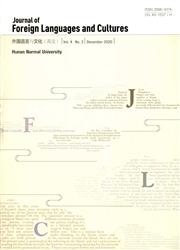Comparativism or What We Talk about When We Talk about Comparing
引用次数: 0
Abstract
In this essay, I suggest that the study of comparative literature is subject to the same distorting pressures as the study of the Orient. “Comparativism,” as I call it, is like orientalism: both a description and a distortion. Constructing its critique in the process of comparing, it inherits deep foundations of historical, cultural, and geographical prejudgment. As with Said’s orientalism, the cornerstone of this construction is West-Eastern (and North-Southern) paternalism, but it is far from the only building block: other obstacles include predetermined views of genre, medium, and even language. There is little, in fact, that is not grist to the will of Western-educated critics. Eastern comparative methodologies, however, are no more innocent of power struggles than their Western counterparts; for one thing, the structural role of empire is shared by both West and East. Simply replacing one hemisphere with another will hardly recalibrate our critical compasses; wherever we are looking from, partiality of perspective is inevitable. The question, then, is whether comparativism constructs itself diversely in diverse circumstances, or whether its prejudices remain essentially the same despite the changing details of time and place. It is a matter, in other words, of the old comparative contest between similarity and difference. What do we talk about when we talk about comparing?比较主义或者当我们谈论比较时我们谈论的是什么
在这篇文章中,我认为比较文学研究与东方研究一样受到扭曲的压力。我称之为“比较主义”,就像东方主义:既是一种描述,也是一种扭曲。在比较的过程中建构其批判,继承了历史、文化、地理的深层判断基础。与赛义德的东方主义一样,这种建构的基石是东西方(和南北方)家长式作风,但它远不是唯一的基石:其他障碍包括对流派、媒介甚至语言的预先确定的观点。事实上,几乎没有什么东西不符合受过西方教育的评论家的意愿。然而,东方的比较方法论并不比西方的比较方法更不受权力斗争的影响;首先,帝国的结构角色是由西方和东方共同承担的。简单地用另一个半球代替一个半球很难重新校准我们的临界罗盘;无论我们从哪里看,观点的片面性都是不可避免的。那么,问题是,比较主义是在不同的环境中以不同的方式构建自己,还是尽管时间和地点的细节不断变化,其偏见基本上保持不变。换言之,这是一个相似性和差异性之间古老的比较竞赛的问题。当我们谈论比较时,我们谈论的是什么?
本文章由计算机程序翻译,如有差异,请以英文原文为准。
求助全文
约1分钟内获得全文
求助全文

 求助内容:
求助内容: 应助结果提醒方式:
应助结果提醒方式:


